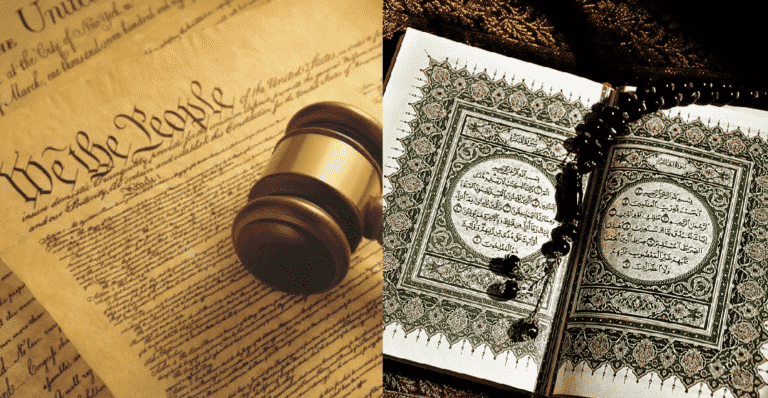Chapter 4: Islamic Thought and the United States Constitution

The religious values of Islam are more compatible with the ideological framework of the United States than most would like to think, mainly because they were taken into consideration at the founding of the country.
In this chapter, I will be attempting to uncover the importance of Muslim values and beliefs in the formation of the United States’ framework of laws (and possibly cultural norms). Drawing on the expertise of American Muslims and other Americans who have dedicated their careers to the study of both the United States Constitution, early American history, and Islamic law and scripture, I will find ways in which themes of Islamic thought have made their way into the composition of our nation. To start off, I will be telling stories of the Founding Fathers and their deliberations while drafting the Constitution. I will discuss the many ways in which these men consulted different religious frameworks (especially Islamic frameworks) and I will compare those deliberations to the contemporary interpretations of the religious and legal documents in question. The focus of this chapter will be to bring attention to the ways in which the United States’ Constitution and the Quran may be similar, and to explore America’s earliest approaches to religious pluralism.
For this chapter, I will be relying on the following sources (this remains an evolving list and may be subject to changes):
- Thomas Jefferson’s Qur’an: Islam and the Founders by Denise Spellberg
- What Every American Needs to Know about the Qur’an: A History of Islam & the United States by William Federer
- The Faiths of the Founding Fathers by David L. Holmes
- The United States Constitution and other relevant legal documents and primary sources
- The Holy Quran


